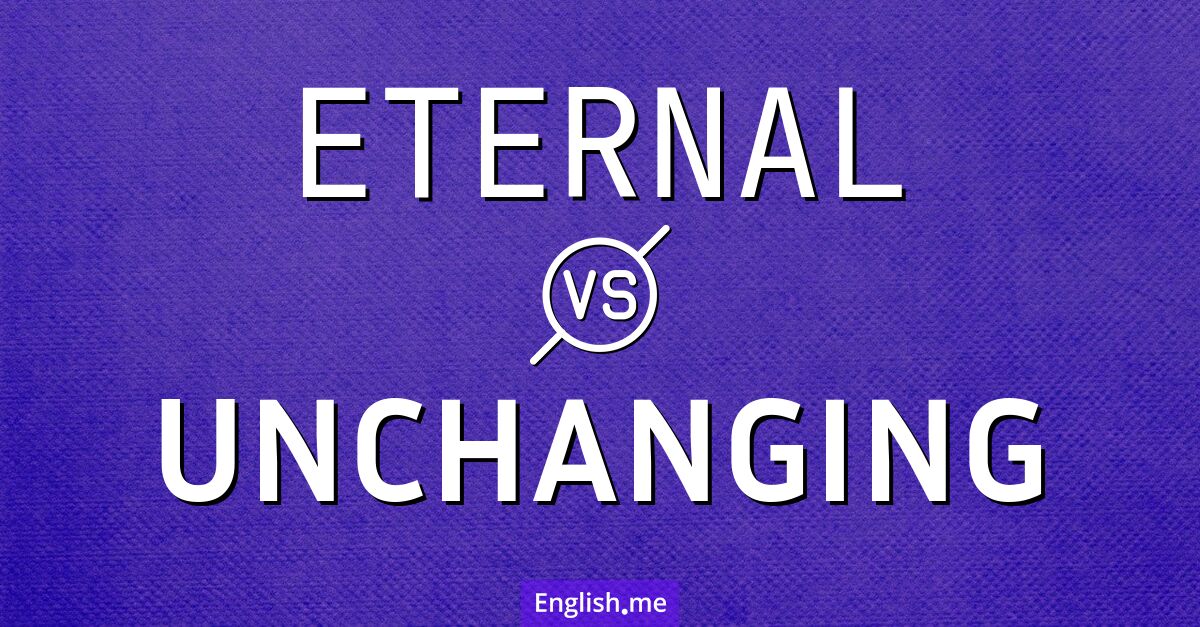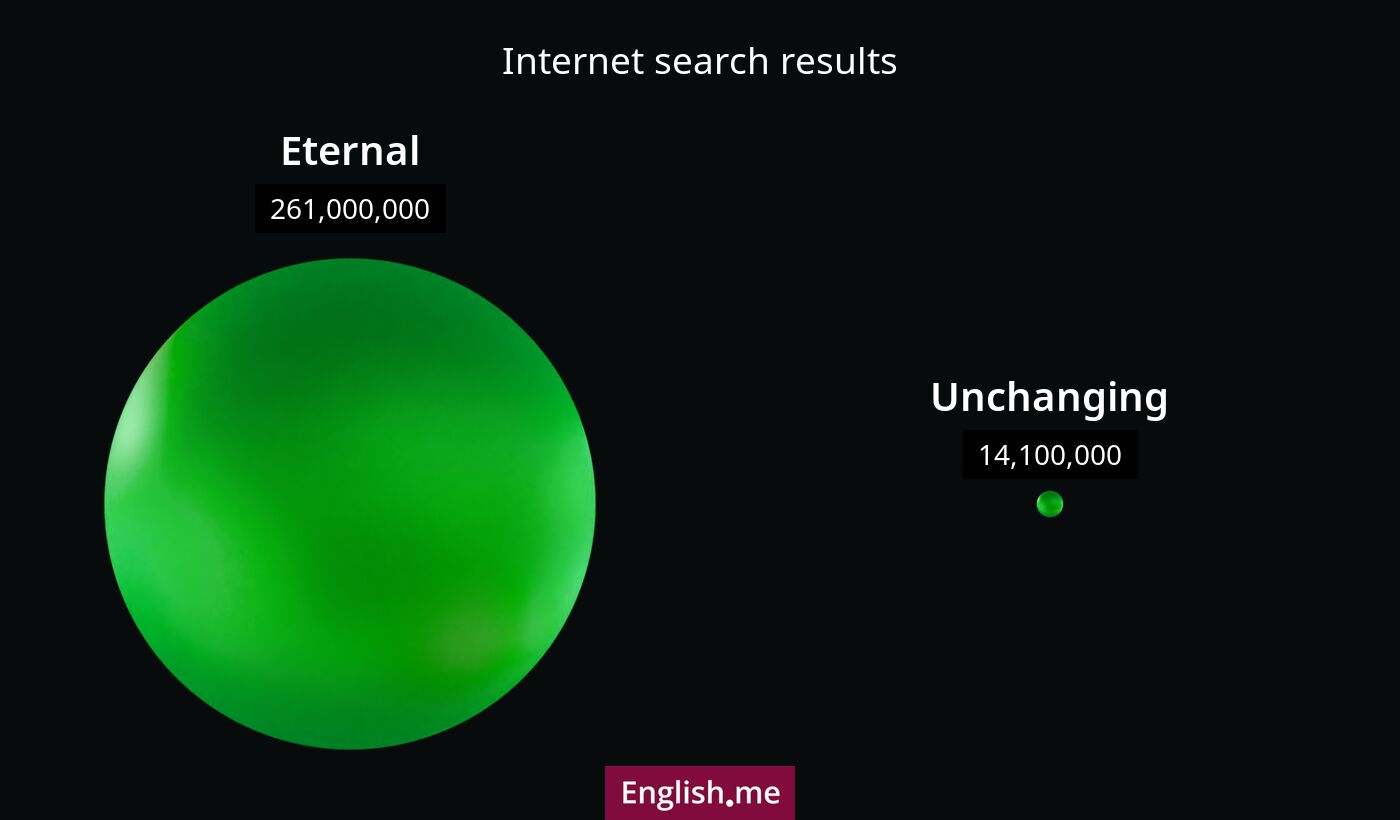Timeless or static? Exploring "eternal" vs. "unchanging"
Reviewed and edited by  Lloyd Cooper 28/10/2024, 04:39
Lloyd Cooper 28/10/2024, 04:39
English.me team member

 What is similar?
What is similar?
Both "eternal" and "unchanging" refer to concepts of permanence and stability. They describe things that remain consistent over time.
 What is different?
What is different?
While "eternal" implies an existence outside of time and is often used in a spiritual or philosophical context, indicating something that lasts forever, "unchanging" simply means something that does not change over time, but does not necessarily imply timelessness. "Eternal" is often used in grand or abstract contexts, whereas "unchanging" can be used for more concrete situations.
 Which one is more common?
Which one is more common?

 Examples of usage
Examples of usage
Eternal- The concept of an eternal soul is central to many religions.
- The stars overhead seem eternal in their distant beauty.
- He yearned for eternal happiness.
- The laws of physics are considered unchanging.
- His love for music was unchanging throughout his life.
- They admired her unchanging devotion to the cause.

 English
English español
español française
française italiano
italiano deutsche
deutsche 日本語
日本語 polski
polski česky
česky svenska
svenska Türkçe
Türkçe Nederlands
Nederlands